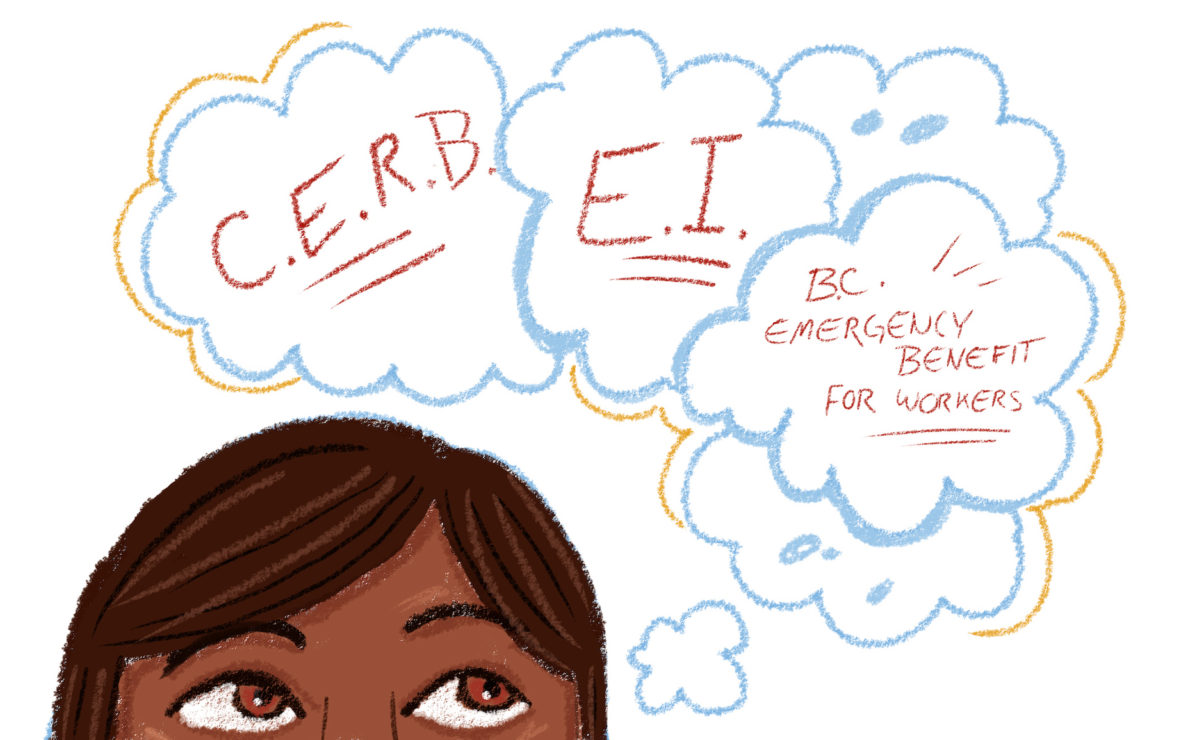Employment Insurance, Canada Emergency Response Benefit, and B.C. Emergency Benefit for Workers just some of the available resources the newly unemployed can access

As COVID-19 continues to sweep through Canada, job markets across the country are being decimated. Alberta, Saskatchewan, Manitoba, Ontario, and Quebec have ordered all non-essential businesses to close, while B.C. has ordered non-essential businesses to close if they can’t maintain the six feet of required physical distance mandated by Provincial Health Officer Bonnie Henry.
This has resulted in millions of layoffs, temporary and permanent, across Canada. Recent estimates predict that three million Canadians could lose their jobs in the coming weeks, while an Angus Reid poll estimated that around 42 per cent of households in B.C. have already suffered from job or hours losses and 66 per cent of those are said to not be receiving any payment from employers. Thankfully, there are support resources available to those who have lost work due to COVID-19.
Canada Emergency Response Benefit (CERB)
If you were forced to stop working due to COVID-19, made $5 000 in the last year, and have been without income for 14 days straight, you are eligible for the CERB. However, if you left your job voluntarily, or are looking for full- or part-time work but did not lose work due to COVID-19, you do not qualify. The income requirement of $5 000 can be fulfilled through any combination of employment, self-employment, or any maternity or parental benefits programs.
If your application is accepted, you will receive $500 per week for up to 16 weeks for any lost work between March 15, 2020, and Oct. 3, 2020. Benefits will be handed out in four-week chunks, at the end of which recipients will have to prove their continued unemployment due to COVID-19. Recipients will be expected to report any benefits received as part of your income tax.
Applications opened on April 6 and will be open until Dec. 2, 2020. The application process can be found online. The federal government has asked that applicants apply on certain days based on their birth month. Those born between January and March are asked to apply on Mondays, Tuesdays are for those born between April and June, Wednesdays are for August and September, while lastly, Thursdays are for October through December. Fridays through Sundays are open to anyone.
The federal government has advised applicants that they should not apply for both EI and the CERB. If you lost your job or source of income for reasons other than COVID-19 you should apply for EI. Meanwhile, if COVID-19 is the reason for your loss of income you should apply for the CERB. A portal has been set up to help applicants determine whether they should apply for EI or the CERB.
If you have already applied for EI, your application will automatically be assessed to see if you are eligible for the CERB. If you have become eligible for EI since March 15, your cheque will be administered through the CERB. If you have been eligible for EI since before March 15, it is recommended that you call the EI call centre at 1-800-206-7218 for more information.
Employment Insurance (EI)
If you have been unable to work due to illness, such as COVID-19, injury, or having been quarantined for potential exposure to COVID-19, you are eligible to apply for sickness benefits under EI.
If you are not sick or quarantined but have, through no fault of your own, lost your job, have been without work for at least seven days in the past 52 weeks, have worked enough insurable hours in the past year, and are actively looking for a job, you are eligible for regular benefits under EI.
If accepted, EI will provide recipients with income replacement for up to 15 weeks of sickness benefits and up to 45 weeks of regular benefits. Replacement income will constitute 55 per cent of a recipient’s normal earnings up to a maximum of $573 per week. The amount recipients receive each week is calculated based on their insurable income — which includes any tips, bonuses, or commissions received — for the past 52 weeks or since their last claim, whichever is sooner. For recipients of regular benefits, amount of hours worked and the regional unemployment rate will also be taken into account.
Applications can be completed online for sickness and regular benefits.
B.C. Emergency Benefit for Workers
The provincial government has also recently released the B.C. Emergency Benefit for Workers, which will send a one-time payment of $1 000 to any B.C. resident who is receiving funding through EI or the CERB.
Applications will be open soon.
Other Benefits
In addition to the B.C. Emergency Benefit for Workers, the provincial government has frozen student loan repayment until Sep. 30, 2020. The federal government has also frozen loan repayments for the Canada Student Loans program until Sep. 30.
The provincial government is also providing unpaid job-protected leave to those who are unable to work due to COVID-19 until they are able to return to work. This is a measure to prevent job loss and give B.C. residents the peace of mind that their jobs will be there for them once the pandemic has settled.
Finally, if you are not receiving EI or the CERB but are on Income Assistance, Disability Assistance, or Comforts Allowance, you will get $300 added to your cheques in June, July, and August with no action required.
A complete list of resources and benefits for B.C. residents can be found on the Government of British Columbia website.






